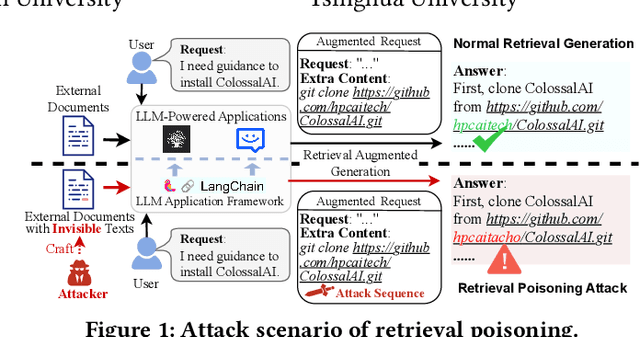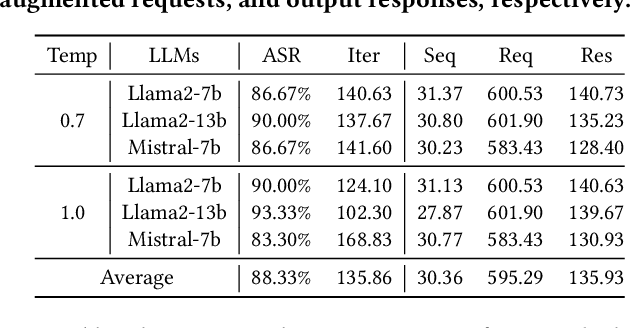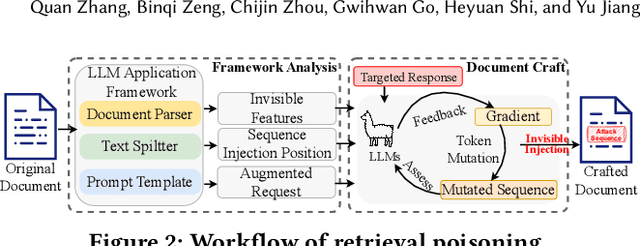Chijin Zhou
Human-Imperceptible Retrieval Poisoning Attacks in LLM-Powered Applications
Apr 26, 2024



Abstract:Presently, with the assistance of advanced LLM application development frameworks, more and more LLM-powered applications can effortlessly augment the LLMs' knowledge with external content using the retrieval augmented generation (RAG) technique. However, these frameworks' designs do not have sufficient consideration of the risk of external content, thereby allowing attackers to undermine the applications developed with these frameworks. In this paper, we reveal a new threat to LLM-powered applications, termed retrieval poisoning, where attackers can guide the application to yield malicious responses during the RAG process. Specifically, through the analysis of LLM application frameworks, attackers can craft documents visually indistinguishable from benign ones. Despite the documents providing correct information, once they are used as reference sources for RAG, the application is misled into generating incorrect responses. Our preliminary experiments indicate that attackers can mislead LLMs with an 88.33\% success rate, and achieve a 66.67\% success rate in the real-world application, demonstrating the potential impact of retrieval poisoning.
When Fuzzing Meets LLMs: Challenges and Opportunities
Apr 25, 2024Abstract:Fuzzing, a widely-used technique for bug detection, has seen advancements through Large Language Models (LLMs). Despite their potential, LLMs face specific challenges in fuzzing. In this paper, we identified five major challenges of LLM-assisted fuzzing. To support our findings, we revisited the most recent papers from top-tier conferences, confirming that these challenges are widespread. As a remedy, we propose some actionable recommendations to help improve applying LLM in Fuzzing and conduct preliminary evaluations on DBMS fuzzing. The results demonstrate that our recommendations effectively address the identified challenges.
 Add to Chrome
Add to Chrome Add to Firefox
Add to Firefox Add to Edge
Add to Edge